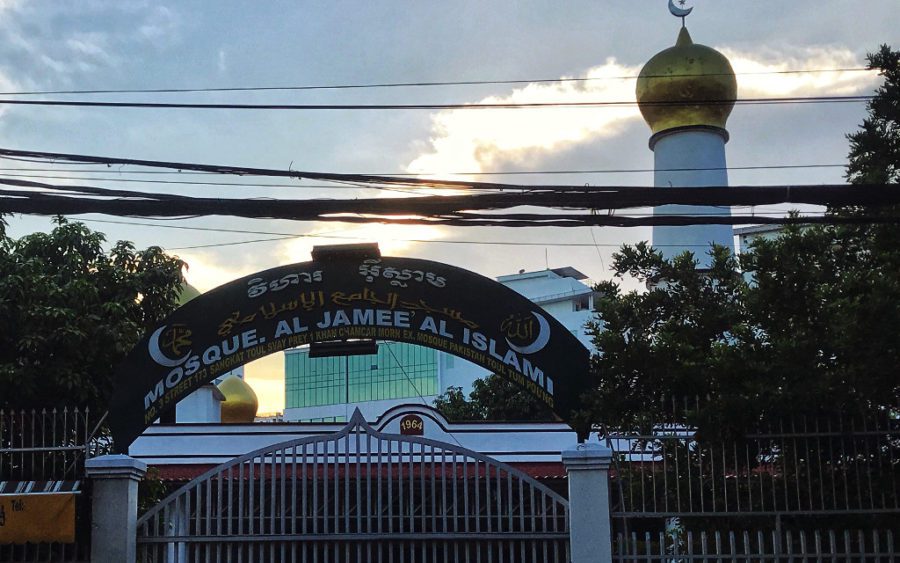After a month of fasting, Phnom Penh’s Muslim community would normally gather at mosques for meals and prayers through the night.
But as Ramadan this year nears its end, mosques remain shuttered as a public health measure, and members of the community say they will celebrate alone.
The Islamic holy month, which began April 12, has coincided with a surge of coronavirus cases and lockdown measures in the capital, adding to the challenges of fasting from sunrise to sunset.
“It feels a little bit sad as the mosque that used to be crowded during this Ramadan month has turned quiet, and I miss my friends and relatives in Muslim communities,” says El Yakoub, who lives in an area of Russei Keo district’s Toul Sangke I commune currently designated as an orange zone, mandating moderate restrictions.
Living in a locked-down area, Yakoub says he won’t be able to travel to see his family in Kampong Chhnang province for the upcoming Eid al-Fitr celebration.
Royani, a 52-year-old housewife in Russei Keo district, says it has also been challenging to find the food she needs as markets have been closed.
“This year, the Ramadan fasting month has been very difficult,” she says.
The country is in the midst of its worst Covid-19 outbreak, with total case numbers surpassing 20,000 on Tuesday.
Earlier this week, the Highest Council for Islamic Religious Affairs Cambodia announced that Eid al-Fitr, marking the end of Ramadan, would be held on Thursday. The date is set every year based on the sightings of the moon.
Sos Kamrei, the council’s director, says it won’t be the usual communal celebrations.
“All of us Muslims must celebrate individually at home for safety — our own, our family’s, our community’s and our country’s,” Kamrei says.
Shafaah Dullah, an Islamic teacher living in Russei Keo, says Eid will be a different experience from normal years.
He usually visits his wife’s family in Kandal province’s Mok Kampoul district and also travels to Tbong Khmum province to see his own family at the end of the fasting month.
“Especially at the start and end of Ramadan, we often gather together, usually to different relatives’ homes in the provinces or different areas of the city,” Dullah says, explaining that last year, visits were also curtailed due to the pandemic. The change feels strange and occasionally stressful, he says. “Even though the travel ban is lifted, our parents do not want us to travel as we can be at high risk.”
There have been some difficulties getting food, but he has felt fine, he says. “As for my health, for this year’s fasting month I do not have any problems. My health is good, strong, and no headaches or fevers at all.”
According to the 2019 census, 2 percent of the country’s population is Muslim, making it Cambodia’s biggest religious minority. Tbong Khmum province has the highest proportion of Muslim residents at 12 percent, the census says, while many of the country’s fishing communities are part of the Cham Muslim ethnic minority.
Dullah encourages everyone in the country’s Muslim community to celebrate Eid al-Fitr at home this year.
“We have to reduce visits to each other’s houses as we do not know and we cannot see if the virus is around us or anyone. So we have to practice social distancing and do our prayers and go out only when it is necessary,” he says. “We can also send each other messages through our phones. This is my request.”
Correction: This article earlier misidentified the district where the family of Shafaah Dullah’s wife lives.












